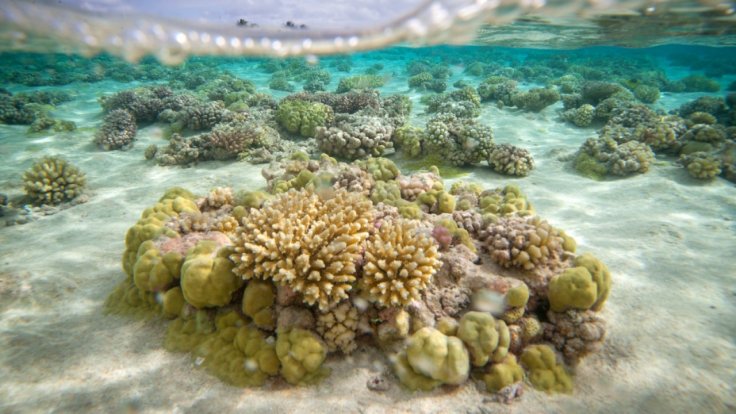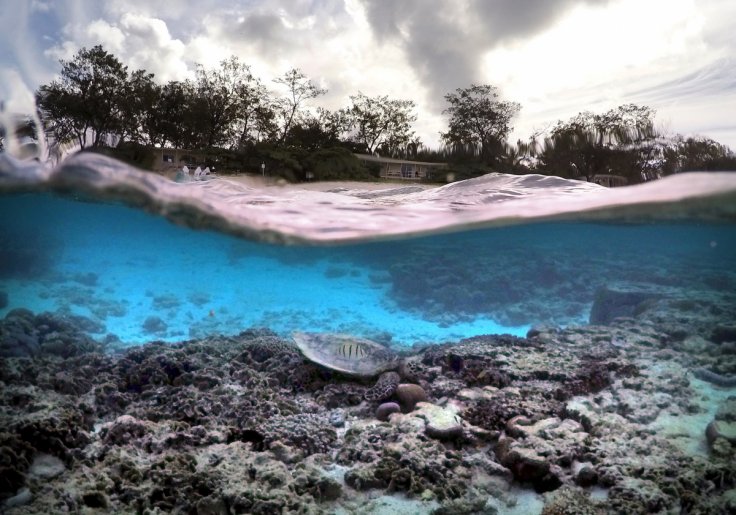The National Oceanic and Atmospheric Administration (NOAA) and the University of Maryland released a report in which the experts sounded an alarm on the ongoing decline of the US coral reefs which has been under threat due to the environment the effects posed by human activity as well as climate change.
The newly released report took stock of the health of coral reefs under US jurisdiction, from Guam and Hawaii in the Pacific to Florida and the Virgin Islands in the Atlantic. Heath Kelsey, director of the University of Maryland Center for Environmental Science said the study found how the increasing warming ocean water, fishing, disease, and pollution from the land have been affecting the Pacific and Atlantic Ocean coral reefs.
The Threat Is Eminent

The coral reefs off the Florida coast are the country's most endangered and as per the officials, nearly two percent of the reefs are now remaining, while these are responsible for a balanced marine ecosystem as the reefs play an important role to support the lives of fishes, as well as other aquatic creatures.
The coral reefs are also natural barriers against storms, specifically in areas that are hurricane-prone. As per NOAA, when the reefs are destroyed or damaged, "the absence of this natural barrier can increase the damage to coastal communities from normal wave action and violent storms".
These are also a huge part of coastal economies that depends on tourism and commercial fishing. Retired Navy Rear Adm. Tim Gallaudet, an assistant secretary at NOAA said, "The economic impacts of coral reefs in the US are around $3.4 billion annually," which indicates its importance to the nation.
'World's Coral Reefs Are in Danger'
The experts said that this is the first time a nationwide assessment was conducted, even though the concerns about the health of the coral reefs have been around for years. There are some studies which suggest that more than half of the world's reefs have been lost and many are currently in danger.
As per the data collected between 2012 and 2018, the experts classified the regions from "very good to "critical" and said that the condition of most coral reef areas in the US was "fair", including those in Hawaii and Puerto Rico.
However, it also added that the sewage, lawn chemicals, and other pollutants that add into the oceans pose potentially catastrophic threats to the survivors of the coral reefs—this threat is noticeable in the waters off South Florida, from the Keys to north of Palm Beach. The report also noted that coral reefs in the Florida region were said to be in "impaired" condition.
While these regions have a huge amount of population, living in close proximity to those reefs, in remote oceans where the human interaction is limited, the coral reefs struggling to survive due to climate change—which has caused the ocean waters to get warmer, killing the corals. As per Kelsey of the University of Maryland, "climate change is the single biggest threat to shallow-water coral reefs in the U.S. and worldwide."

The new report represents "a snapshot" of the condition of the reefs said Jennifer Koss, the director of NOAA's coral reef conservation program adding that it is a "great resource for communities and decision-makers throughout the nation". Koss also believes that the report will help to start a dialogue on factors and potential solutions to threats affecting the coral reefs.
There is still hope that the world's coral reefs will overcome the danger and threats with the help of lawmakers, environmentalists as well as world leaders but current US President Donald Trump's stance on climate change has not helped the situation.
If we burn all known fossil fuel reserves, as soon as the end of this century, the earth could warm by more than six degrees, meaning oxygen levels would plummet and life on earth could suffocate. As the clock is ticking and time is running out, President-elect Joe Biden has promised to take necessary actions against climate change.









